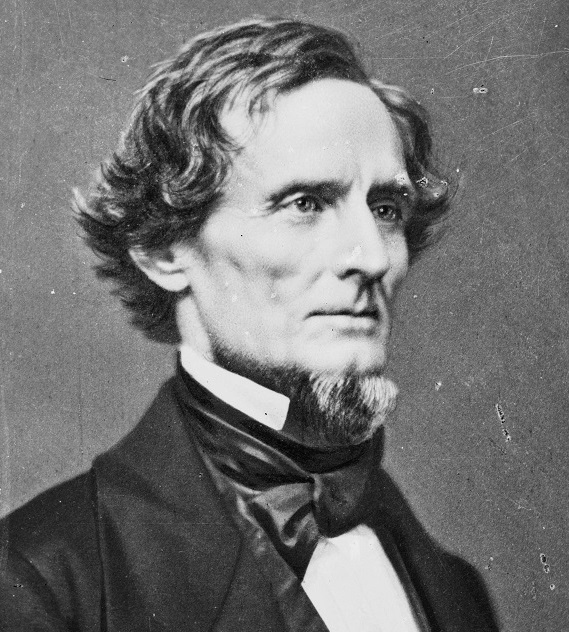
A review of Brian R. Dirck, Lincoln and Davis: Imagining America, 1809-1865 (Lawrence, KS: University of Kansas Press, 2001).
Mr. Dirck’s comparative analysis of Abraham Lincoln and Jefferson Davis promises much. Friendly reviewers have found his work “intellectual history at its most stimulating,” or “psychologically sophisticated.” Alas, I confess that I do not see it. To be fair to Mr. Dirck, he is constrained by the usual orthodoxies and dogmas which currently reign in the academy. Moreover, Mr. Dirck does attempt a fair analysis of both men, and he does give us useful parts of both Davis and Lincoln, moreso Davis, but we do not quite get the whole man in either case. In Lincoln’s case, Mr. Dirck’s analysis leaves out the essence of the man’s self-conception.
Much of Mr. Dirck’s narrative plunges into the depths of psycho history. Psychology is a slippery enough endeavor when one has the patient live and in person, and on the couch. When the subjects are dead and the source record is incomplete, then one treads where angels fear to go. For example, let us examine Mr. Dirck’s case for the presence of surrogate fathers in the life of both Mr. Davis and Mr. Lincoln. Joseph Davis, the elder brother of Jefferson Davis, does present a plausible figure for surrogate father. He takes an active interest in Jefferson Davis’s education, his professional career as a soldier, and later as a planter and politician, and in the formation of Jefferson Davis’s character and intellect. The case for Henry Clay and George Washington representing surrogate fathers for Lincoln is a bridge too far. Granted, the idea fits neatly with Mr. Dirck’s Lincoln as the abstract and detached logician. Nevertheless, describing Mr. Lincoln’s reaction to Stephen Douglas’s charge that Lincoln had betrayed the principles of Henry Clay as that of an indignant “natural descendant.” is a stretch.
Could not a more simple explanation be that Lincoln was merely stung by Mr. Douglas’s veiled charge of hypocrisy for Lincoln’s rejection of the Compromise of 1850? A compromise that was, as Mr. Douglas pointed out, designed by one Henry Clay. As they say in psychology, sometimes a cigar is just a cigar.
More @ The Abbeville Institute

Psychology is just pseudo intellectuals that have too much free time o their hands and too little intelligence to do anything useful.
ReplyDeleteGood description.
Delete